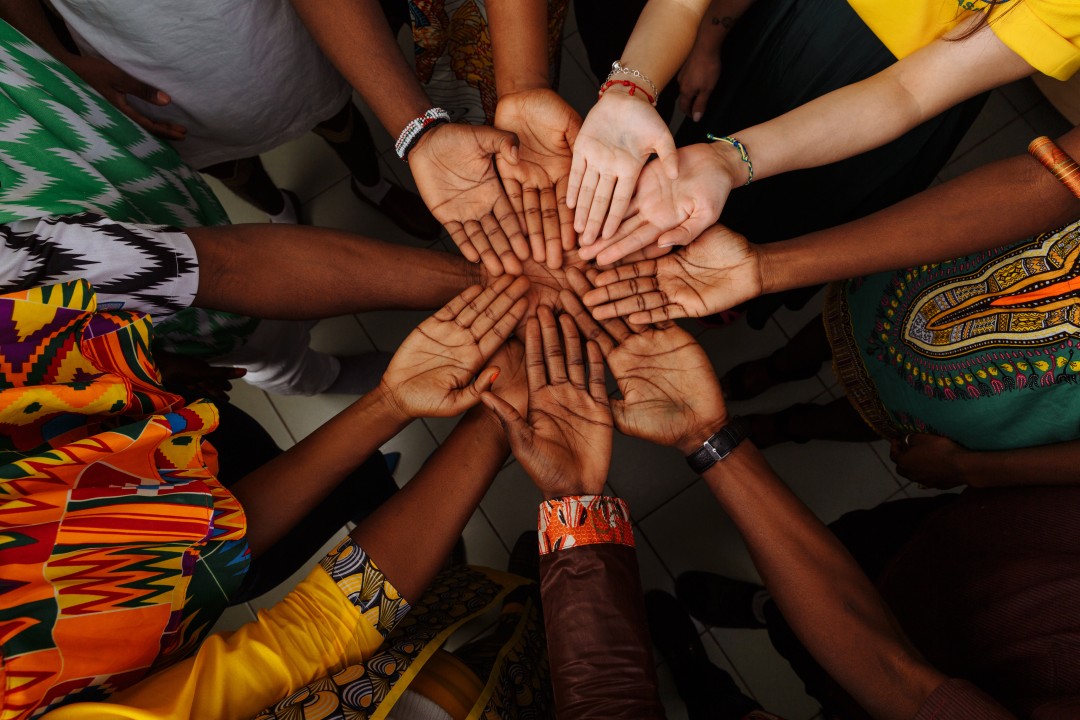
In my many conversations about mental health, a recurring question is, “Why does mental health often feel like a distant, unreachable topic?” Is it because mental health advocates, practitioners and enthusiasts unintentionally distance people from the conversation because they use language that feels too big or ambiguous for everyday people? Or is it that mental health issues themselves are multilayered and challenging to confront? I’m still undecided. However, one thing is clear: how we talk about mental health matters.
Too often, the language around mental health feels disconnected, almost alien, to those who need it most. Complex terms and clinical jargon can create a barrier, leaving people feeling excluded or unsure how to relate. For this reason, I’ve chosen to champion the “gospel according to mental whole health” in simple, relatable English. I aim to bring these conversations closer to home, where they belong—because mental health isn’t something that happens “out there.” It’s deeply personal, affecting people we know and love – our friends, family, neighbours, and even ourselves. When someone tells us they’re depressed, burnt out, or overwhelmed by thoughts of ending it all, how do we respond? Too often, we dismiss these feelings, saying things like, “Don’t talk like that,” or “You’ll be fine.” But these are real, urgent issues that require understanding, not dismissal.
My first encounter with mental health challenges wasn’t with depression or anxiety. It was postpartum blues, a condition that affects about 10 – 13% of new mothers. I remember hearing the anguished screams of this woman locked in one of the rooms of the flat on the 4th floor. When I asked what was happening, I was told she had recently given birth.
This was my introduction to a struggle that, in Yoruba culture, carries a stigmatising label. Families often cover up such issues instead of seeking help, fearing shame and judgment. The societal response compounds the problem, isolating those in need. Recently, I heard a chilling story about a woman who experienced severe postpartum psychosis. In her confusion and detachment from reality, she harmed her baby and another child she was watching. Stories like this aren’t isolated—they reveal the widespread nature of mental health issues and how silence around them only deepens the problem.
At its core, mental health is simply the state of our emotional psychological and social well- At its core, mental health is merely the state of our emotional, psychological and social well-being. It’s not something only a few people have; it’s something we all possess. And like physical health, it exists on a spectrum. Good or stable mental health means that even during life’s challenges, we can maintain balance and cope effectively. Declining mental health, on the other hand, occurs when prolonged stress, trauma, or difficult situations cause our emotional well-being to deteriorate. The society continues to demonise mental ill health, such as depression, suicidal thoughts, burnout, and other conditions, viewing them through a lens of stigma and judgment, making it harder for people to seek help. The range of mental health issues is vast, but the response of the society is often the same: silence, avoidance, or outright denial.
The question we must ask ourselves as a society is: How do we stop demonising mental health issues? How do we confront the “elephant in the room” and create a culture of empathy, support and understanding?
First, we need to acknowledge that mental health challenges exist—and they exist here, in our families, our workplaces, and our communities. This is the elephant in the room we must confront. Pretending these issues don’t exist only perpetuates the stigma and isolates those who need support the most.
The next step is to Shift the Narrative. Society has cast a negative shadow over mental health issues, labelling them as taboo, signs of weakness or worse still, curses. We must reframe the conversation to emphasise healing, strength, and community.
Finally, we must foster a Culture of Support Without Judgment. While prioritising self-care, we must also look out for those around us. Simple acts of kindness, empathy, and checking in with friends and family can make a difference. By being open about our struggles and encouraging others to do the same, we begin to break the canopy of shame society has cast over mental health. Encouraging people to seek therapy or counselling should be seen as a sign of strength, not weakness.
The journey to destigmatising mental health is not likely to be easy, but it is necessary. By addressing these issues head-on, we can build a society where mental health isn’t shrouded in fear or misunderstanding. It’s time to move from silence to solidarity, stigma to support, and fear to understanding. Together, we can make mental health a conversation we’re not afraid to have—one that brings healing and hope to everyone involved.
Read More:
- Molde FK Sign Nigerian Teenage Sensation Daniel Daga On 3-Year Deal
- Timileyin Ajayi Pleads Not Guilty in Court After Confessing to Killing 24-Year-Old Salome Adaidu in TV Interview
About The Author
Related Articles
Zimbabwe Rejects $350m US Health Deal Over Sovereignty Dispute
Zimbabwe has formally withdrawn from negotiations on a proposed $350 million health...
ByWest Africa WeeklyFebruary 25, 2026Nigeria Film Industry Calls for Cheaper Tickets and Decentralised Cinemas to Boost Nollywood
Nigeria’s film industry is at a critical crossroads as experts warn that...
ByWest Africa WeeklyFebruary 23, 2026Tinubu Spends $9M on Lobbyists While Nigerians Die from Starved Health System — Less Than ₦36M Released from ₦218B Budget
As Nigeria’s healthcare system continues to strain under chronic underinvestment, fresh disclosures...
ByWest Africa WeeklyFebruary 12, 2026Tyla Wins Best African Music Performance at 2026 Grammys
South African singer Tyla has won the Best African Music Performance award...
ByWest Africa WeeklyFebruary 2, 2026













Leave a comment